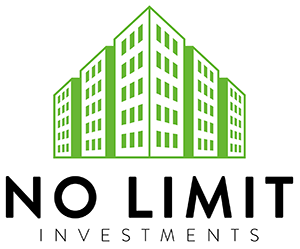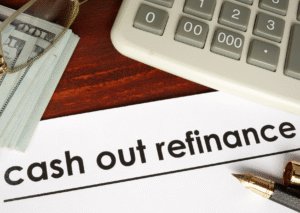What Are Bridge Loans and How Do They Work?
Bridge loans are short-term financing solutions designed to “bridge” the gap between an immediate funding need and the availability of more permanent financing. They are often used in real estate when investors must act quickly to secure a property before arranging long-term financing.
In practice, a bridge loan offers fast approval, flexible underwriting, and a loan term ranging from a few months to two years. Unlike traditional mortgages, bridge loans emphasize the asset’s value and potential over the borrower’s long-term credit profile. This makes them ideal for investors facing tight deadlines or competitive markets (Federal Deposit Insurance Corporation, “Understanding Different Loan Products”).
Why Are Bridge Loans Important for Real Estate Investors?
Bridge loans are essential because they provide speed, flexibility, and opportunity. In fast-moving real estate markets, waiting for traditional mortgage approval can mean losing out on profitable deals. Bridge loans:
- Enable quick property acquisitions
- Allow investors to begin renovations immediately
- Offer customizable terms to suit project timelines
- Can be structured around projected property value rather than current income
By focusing on the deal’s potential rather than just the borrower’s financial history, bridge loans help investors seize opportunities that might otherwise be out of reach.
How Can Bridge Loans Support Different Investment Strategies?
One of the biggest advantages of bridge loans is their versatility. They can complement various real estate strategies, including:
- Fix & Flip Projects – Bridge loans allow investors to purchase, renovate, and resell properties without waiting for long-term financing approval.
- Buy & Hold Investments – While awaiting permanent rental financing, investors can use a bridge loan to secure the property quickly.
- BRRRR Strategy – Bridge loans can cover the initial buy-and-rehab phase before refinancing into a long-term mortgage.
- New Construction – Bridge loans can provide funds to start building while finalizing construction-specific financing.
This flexibility aligns directly with the tailored funding solutions offered by No Limit Investments.
What Are the Advantages of Bridge Loans Over Traditional Financing?
Compared to traditional loans, bridge loans offer:
- Faster Approval – Often within days rather than weeks or months.
- Asset-Based Lending – Focus on property value, not just borrower’s income.
- Short-Term Commitments – Ideal for transitional financing needs.
- Flexibility in Terms – Easier to match repayment to project timelines.
These advantages make bridge loans particularly valuable in competitive markets where timing is everything (Consumer Financial Protection Bureau, “Loan Options and Processes”).
How Do Bridge Loans Work with Other Real Estate Loan Products?
Bridge loans often serve as the first step in a broader financing plan. For example:
- Use a bridge loan to acquire and renovate a property.
- Transition into a Buy & Hold Mortgage for long-term rental income.
- Employ a Cash Out Refinance to pull equity from the property for future deals.
- Leverage DSCR Loans to qualify based on rental income instead of personal finances.
By combining bridge loans with No Limit Investments’ suite of services—Fix & Flip Loans, Buy & Hold Mortgages, BRRRR Financing, Cash Out Refinance, DSCR Loans, and New Construction Loans—investors can build a financing strategy that grows with their portfolio.
What Risks Should Investors Consider with Bridge Loans?
While bridge loans offer many advantages, investors must consider:
- Higher Interest Rates – Short-term convenience comes with higher costs.
- Short Repayment Periods – Typically 6–24 months, requiring a clear exit strategy.
- Collateral Requirements – Loans are often secured by the property.
- Market Fluctuations – Changes in property values can impact refinancing potential.
Mitigating these risks involves proper planning, accurate property valuation, and working with a trusted lender like No Limit Investments.
How Can Investors Qualify for Bridge Loans?
Qualifying for a bridge loan often depends on:
- Equity in Current Property – If using an existing asset as collateral.
- Down Payment Ability – Lenders may require 20–30% equity.
- Exit Strategy – Clear plan for repayment through sale, refinance, or other financing.
- Property Value & ARV – After-repair value is often a key factor in approval.
Experienced lenders streamline this process, offering fast, investor-friendly approvals based on deal potential rather than just borrower history (U.S. Small Business Administration, “Financing Options for Small Business Owners”).
How Should Investors Choose the Right Bridge Loan Lender?
When selecting a bridge loan lender, investors should consider:
- Speed of Approval – Can the lender fund quickly enough to meet deadlines?
- Experience with Investment Properties – Familiarity with investor needs is critical.
- Flexible Underwriting – Ability to structure terms around project requirements.
- Range of Loan Products – So you can transition from bridge financing to permanent loans seamlessly.
No Limit Investments offers all of these advantages, making them a one-stop solution for investors who want both short-term agility and long-term growth support.
Why Should Investors Partner with a Full-Service Lender for Bridge Loans?
A full-service lender doesn’t just offer bridge loans, they provide complementary loan products and strategic advice to ensure your investment succeeds from start to finish. Partnering with a company that offers Fix & Flip Loans, Buy & Hold Mortgages, BRRRR Financing, Cash Out Refinance, DSCR Loans, and New Construction Loans ensures you have funding solutions for every stage of your investment journey.
How Can You Get Started with a Bridge Loan Today?

If you’re ready to act fast in today’s competitive real estate market, bridge loans can give you the edge. Whether you’re flipping a property, building new construction, or holding for rental income, having a trusted financing partner is crucial.
Visit No Limit Investments today to explore tailored bridge loan solutions and a full range of investor-focused financing options that can take your portfolio to the next level. Book an appointment now!
Final Thoughts
Bridge loans are powerful tools for real estate investors who need speed, flexibility, and short-term funding to secure profitable deals. By understanding how they work, their benefits, and how to integrate them with other loan products, investors can maximize returns while minimizing risks. Partnering with a full-service lender ensures not only quick funding but also access to long-term growth strategies. With the right approach, bridge loans become more than just temporary financing, they become a stepping stone to sustainable real estate success.
Works Cited
Consumer Financial Protection Bureau. Loan Options and Processes. consumerfinance.gov, 2024.
Federal Deposit Insurance Corporation. Understanding Different Loan Products. fdic.gov, 2023.
U.S. Small Business Administration. Financing Options for Small Business Owners. sba.gov, 2024.
Frequently Asked Questions
- What is a bridge loan in real estate investing?
A bridge loan is a short-term financing option that helps investors purchase or renovate a property quickly while waiting for long-term financing. It “bridges” the gap between the purchase and the final financing solution, making it ideal for time-sensitive opportunities. - How long does it take to get approved for a bridge loan?
Approval times for bridge loans are typically much faster than traditional mortgages, often within days. Lenders like No Limit Investments focus on the property’s value and your exit strategy rather than lengthy personal income verification. - Can bridge loans be used for fix and flip projects?
Yes. Bridge loans are perfect for fix and flip projects because they provide quick access to capital, allowing investors to buy, renovate, and sell without delays. They work well alongside Fix & Flip Loans offered by No Limit Investments. - What is the difference between a bridge loan and a DSCR loan?
While a bridge loan is short-term and meant to cover immediate financing needs, a DSCR loan is long-term and approved based on a property’s rental income rather than the borrower’s personal income. Investors often use a bridge loan first, then refinance into a DSCR loan for ongoing rental income. - Why should I choose a lender that offers multiple real estate loan products?
Working with a full-service lender like No Limit Investments ensures you have access to a variety of loan solutions, such as Buy & Hold Mortgages, BRRRR Financing, Cash Out Refinance, and New Construction Loans, so your financing strategy can adapt to every stage of your investment journey.







